Impact-oriented research is central to the Faculty. Our research focuses on two main areas:
 Example:
Example:
The work of the Special Needs Education and Inclusive Environments Research Theme has directly benefited 45,000 SEN students in Hong Kong schools over three decades. It has exposed the stigmatisation and policy neglect of SEN students and addressed this problem by changing community attitudes and providing policy advice (in 2015, 2018), resulting in the appointment of SEN Coordinators in all Education Bureau schools, the reassignment of onsite rehabilitation services to professional NGOs, and an increase in service places for SEN students from 3000 to 7000 by 2019.
 Example:
Example:
The ARC led an international team from Poland, Romania, Turkey, Croatia, Servia, Zimbabwe, USA, Singapore, Lithuania, Taiwan, and China to validate the effectiveness of short breaks using web-based games to stimulate concentration and learning in classrooms. This research contributed to the development of a global company, Brain Breaks® endorsed by UNICEF and the Foundation for Global Community Health. The research has resulted in 2,694 books (WorldCat), 39.6 mil websites and 338 mil references (Google) on using the concept of brain breaks for teaching and learning.
CPH researchers have developed multiple pain measures adopted by 8 clinics in Hong Kong and validated the Chinese version of the Sleep Condition Indicator.
Our research generates five main types of impact on:
The key beneficiaries of research by FEHD are:
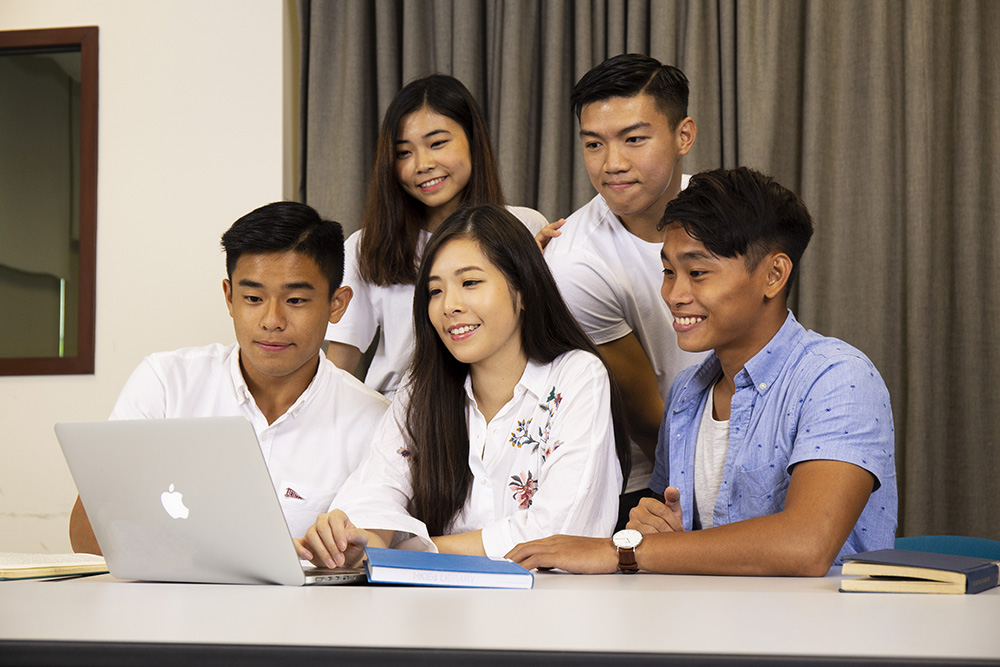
Prof C P Lim’s collaboration with four local universities through the Blended & Online Learning & Teaching (BOLT) project has enhanced student learning across different programmes, and in higher education institutions in Cambodia, China, Korea, Mongolia and Sri Lanka.
Supported by the Asian Development Bank, UNESCO and the World Bank, the research increased the availability of equitable quality education.
Prof Lim’s framework was also adopted by UNESCO (Asia-Pacific) for its information and communication technologies in the education project Seizing Digital Opportunities in Higher Education, funded by the Shenzhen Municipal Government (US$500,000). The Royal University of Phnom Penh (RUPP) in Cambodia and Colombo University in Sri Lanka have adopted Lim’s framework to guide their senior management teams. This has impacted around 25,000 students.
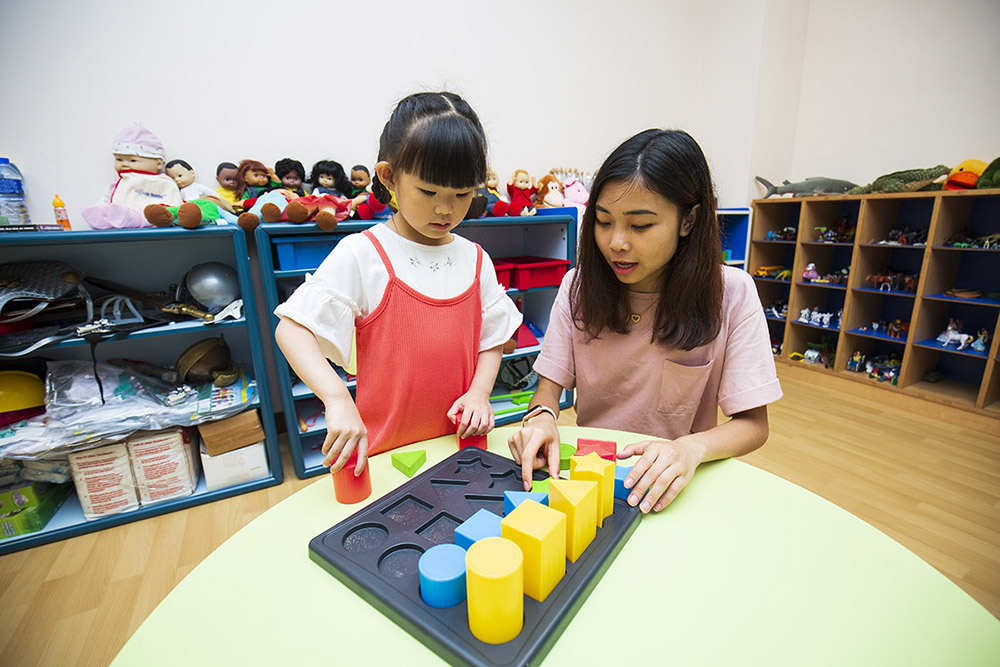
Dr Susanna Yeung’s partnership with 20 kindergarten teachers across eight kindergartens has led to an intervention project on a language-rich phonological approach with 250 children in K3. The teaching resource manual produced in this research has benefited around 400 pre-service and in-service early childhood education teachers annually.
Another researcher in this study, Dr Dan Lin, collaborated with more than 10 schools from three districts in Hong Kong and directly benefited over 500 children on early literacy skills and learning motivation. This collaboration was later extended to Macau and mainland China, in particular, Nanjing and Hangzhou, to over 100 participants, including educators, practitioners, parents, and students.
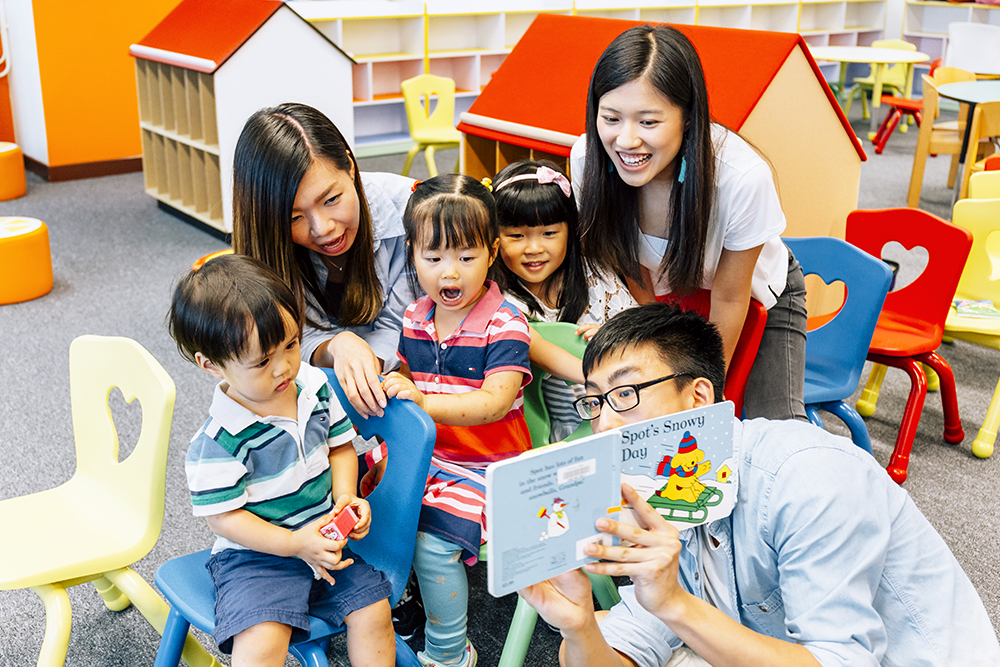
Dr Gail Yuen’s research has revealed that marketization models using voucher funding decreased educational quality and increased social and economic inequities.
Her research impact was strengthened by convening an alliance of 30 educational bodies, and by her inclusion in the Education Bureau’s Committee on Free Kindergarten Education.
Her findings led to the government’s abandonment of its policy of marketization and a new funding model of direct subsidies for not-for-profit kindergartens. The change has decreased the economic burden of poor families, and improved teacher-student ratios and teacher salaries: key conditions for improving education quality.

Drs Ian Lam and Eva Lau’s studies have impacted over half a million parents. The three studies, on more than 950 Chinese families, have resulted in a paradigm shift from parenting guidance based on Western studies to one that emphasises the use of local research to inform parenting practices.
Knowledge has been disseminated through the print and online media, as well as in knowledge exchange activities, including conferences, newsletters and public talks.
Working with the Centre for Child and Family Science, and with funding from the Simon K. Y. Lee Foundation, an evidence-based intervention, Early Prevention, Early Identification, and Early Intervention (3Es), was established to promote children’s cognitive control and prosocial skills.

Dr Esther Lau’s team has collaborated with the University of Oxford to develop and validate the Chinese version of the Sleep Condition Indicator (SCI) for both clinical and research use. The research has established a unique, eight-year longitudinal dataset of over 8,000 students and community adults with over 100 psychosocial-spiritual variables per person to generate the first empirical evidence in the world that sleep quality predicts optimistic/pessimistic attitudes to life, both directly and indirectly through its effects on mood.
Furthermore, Dr Lau has partnered with the Correctional Services Department of the HKSAR government to provide training sessions for 26 psychologists to equip them with the skills to help persons in custody with sleep problems, related to their behavioural and mental health issues, with suicide and violence.
Dr Lau later developed a partnership with counsellors in 14 local tertiary institutions to conduct sleep assessments and interventions.

Dr Margarita Pavlova, Director of the UNESCO-UNEVOC Centre of Hong Kong since 2013, has worked with the policymakers, government officials, institutions and educators of 34 countries.
Her work focuses on implementing low-carbon economies and changing policy and educational practices in technical vocational education and training (TVET). With funding from UNESCO, the Asian Development Bank, the Asia-Pacific Economic Cooperation and the Research Grants Council in Hong Kong, her work has uncovered evidence-informed strategies for the effective implementation of green skills.
Her work has benefited industries such as hospitality management, auto-mechanics, waste management, PVC industries, photovoltaics and agro-forestry.
Division of Psychology, School of Social Sciences, Nanyang Technological University
School of Psychology, South China Normal University
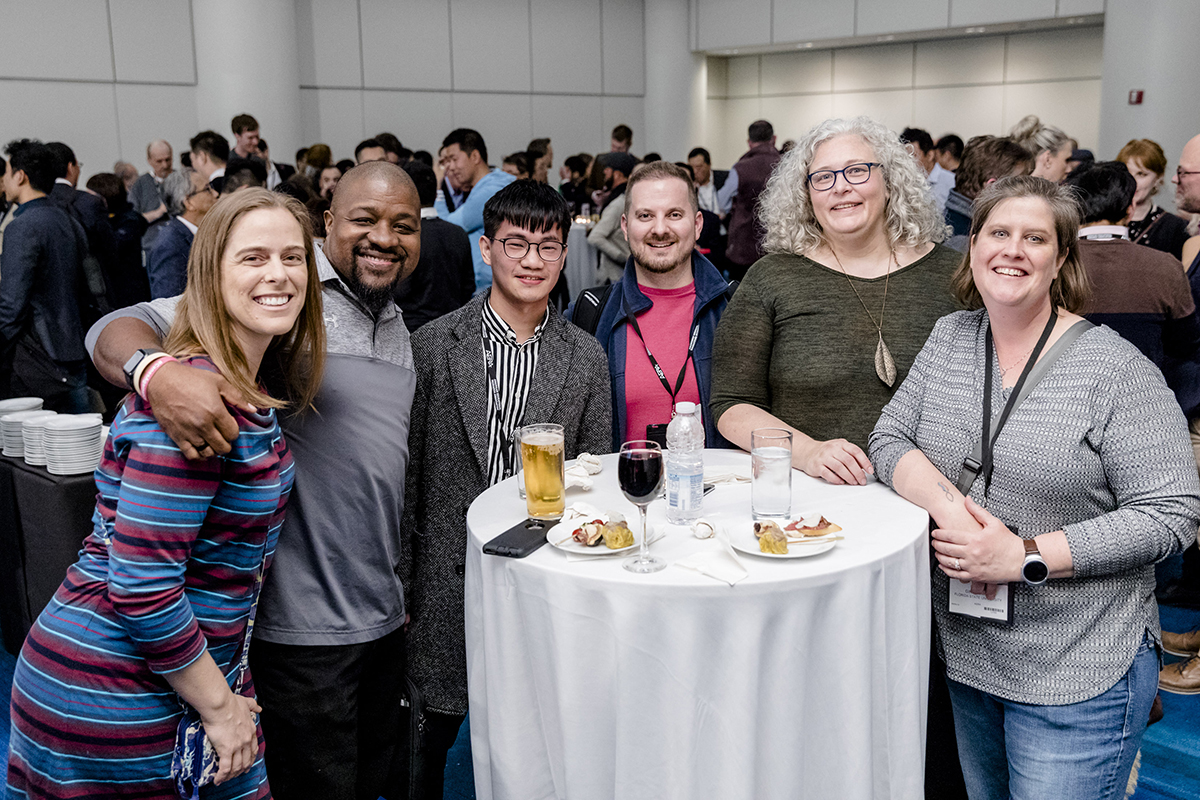
FEHD has hosted a reception at the AERA Annual Conference in Washington D.C, San Antonio, New York and Toronto since 2016. This allows us to connect with over 300 academics from approximately 135 universities and professional organizations, as well as publishers from more than 20 countries, every year. Our staff also chair conference sessions, and participate in academic presentations, interest group meetings, journal editorial board meetings, research project meetings, and book launches.
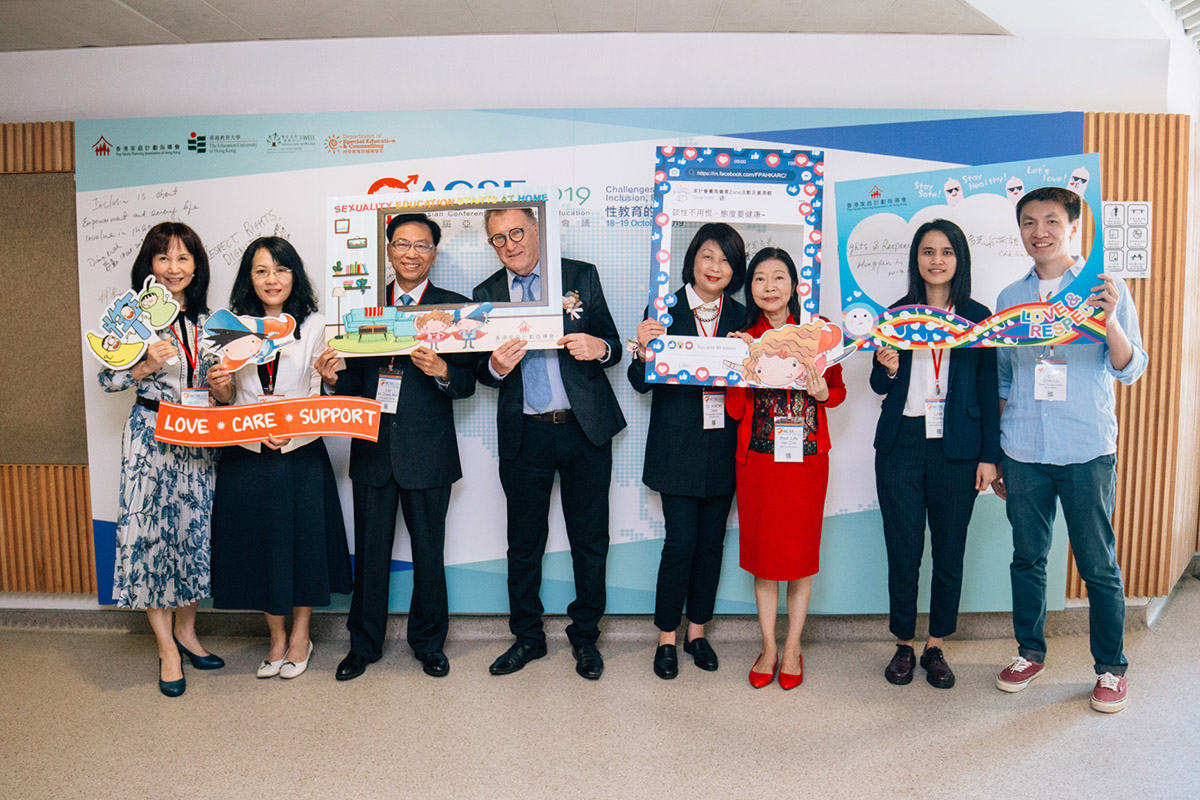
We hosted the 7th Asian Conference on Sexuality Education 2019 (18 - 19 October) on the theme ‘Challenges of Sexuality Education: Inclusion, Relevance, Comprehensiveness’, in partnership with The Family Planning Association of Hong Kong (FPAHK). The Conference brought together more than 250 distinguished scholars, educators, community and clinical practitioners, policy advocators, parents and youth ambassadors from Australia, Indonesia, Japan, Mainland China, the Philippines, Taiwan, etc. to share experiences, expertise and practices, and to build collaborations among stakeholders to advance sexuality research and education across the Asia region. It is included cutting research by our staff on sexuality education for students with Autism Spectrum Disorder (Kwok) and the impact of school victimization on education attainment for lesbian, gay, bisexual, transgender, and intersex (LGTI) students (Chan).
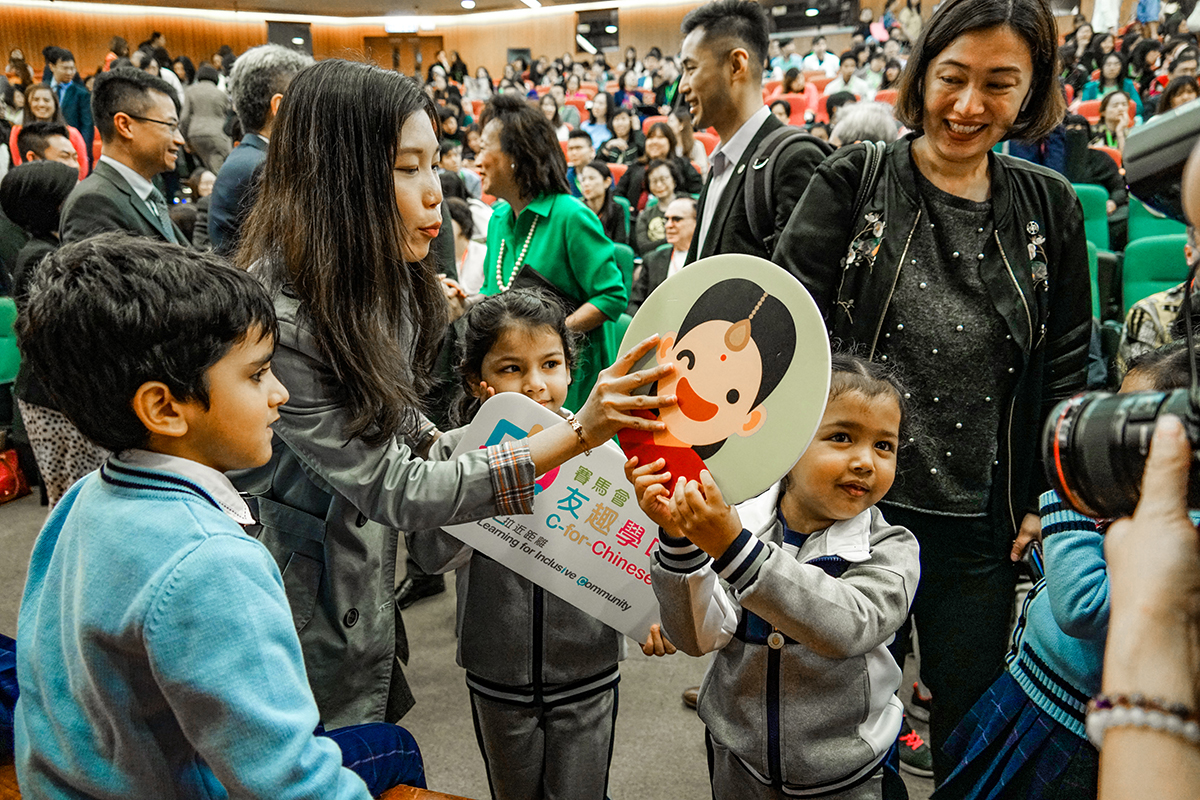
FEHD hosted the ‘Education for All - Conference on Multicultural Education 2019’ (April 17 – 18) as part of our involvement in the C-for-Chinese@JC initiative funded by The Hong Kong Jockey Club Charities Trust and conducted in collaboration with University of Hong Kong, the Hong Kong Polytechnic University, Hong Kong Christian Service, and HKSKH Lady MacLehose Centre.
This five-year initiative aims to help non-Chinese speaking children in kindergarten to develop fundamental Chinese language ability, for better transition to primary education and early integration into the community. It uses a pioneering home-school-community evidence-based model to build a culturally sensitive teaching and learning environment in kindergartens.
Over 260 participants from higher institutions and the local community attended, including representatives from kindergartens and primary schools and NGOs. Simulating two keynote speeches were presented by Professor James Banks from University of Washington and Professor Fred Dervin from University of Helsinki, as well as plenary and parallel sessions by international and local experts on multicultural education.
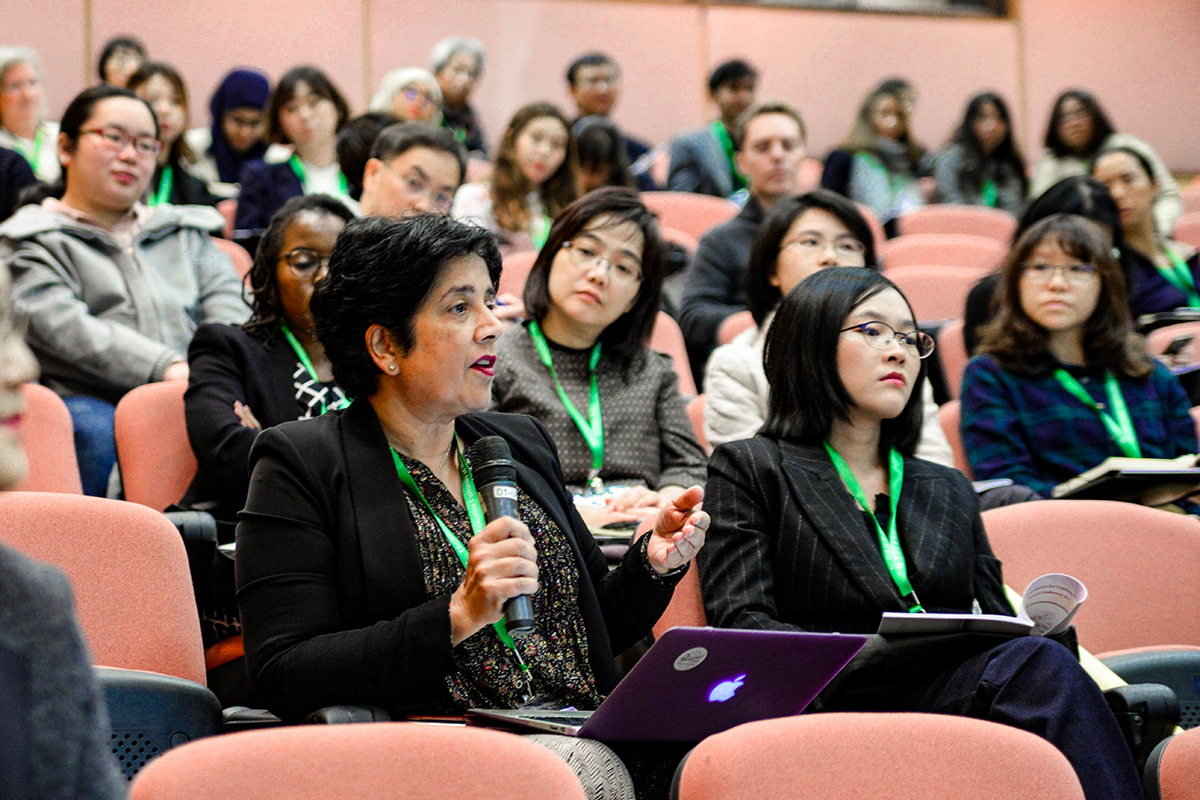
On 24 - 25 February 2017, FEHD hosted the inaugural conference of the Association for Reading and Writing in Asia (ARWA).
The Conference enabled more than 100 researchers and practitioners to exchange ideas and experiences about research, practice and policies on reading and writing with reference to international trends and the Asian region. Speakers came from Australia, India, Japan, Singapore, South Korea, Taiwan, the Philippines, the mainland China, the United Kingdom, the United States, and other regions.
It included presentations by Dr Ho Cheong Lam’s on investigating the qualitative differences in children’s learning, and by Dr Yanling Zhou shared her insights on the word-reading skills of kindergarten children speaking Chinese as a first language, and as a second language in Hong Kong.